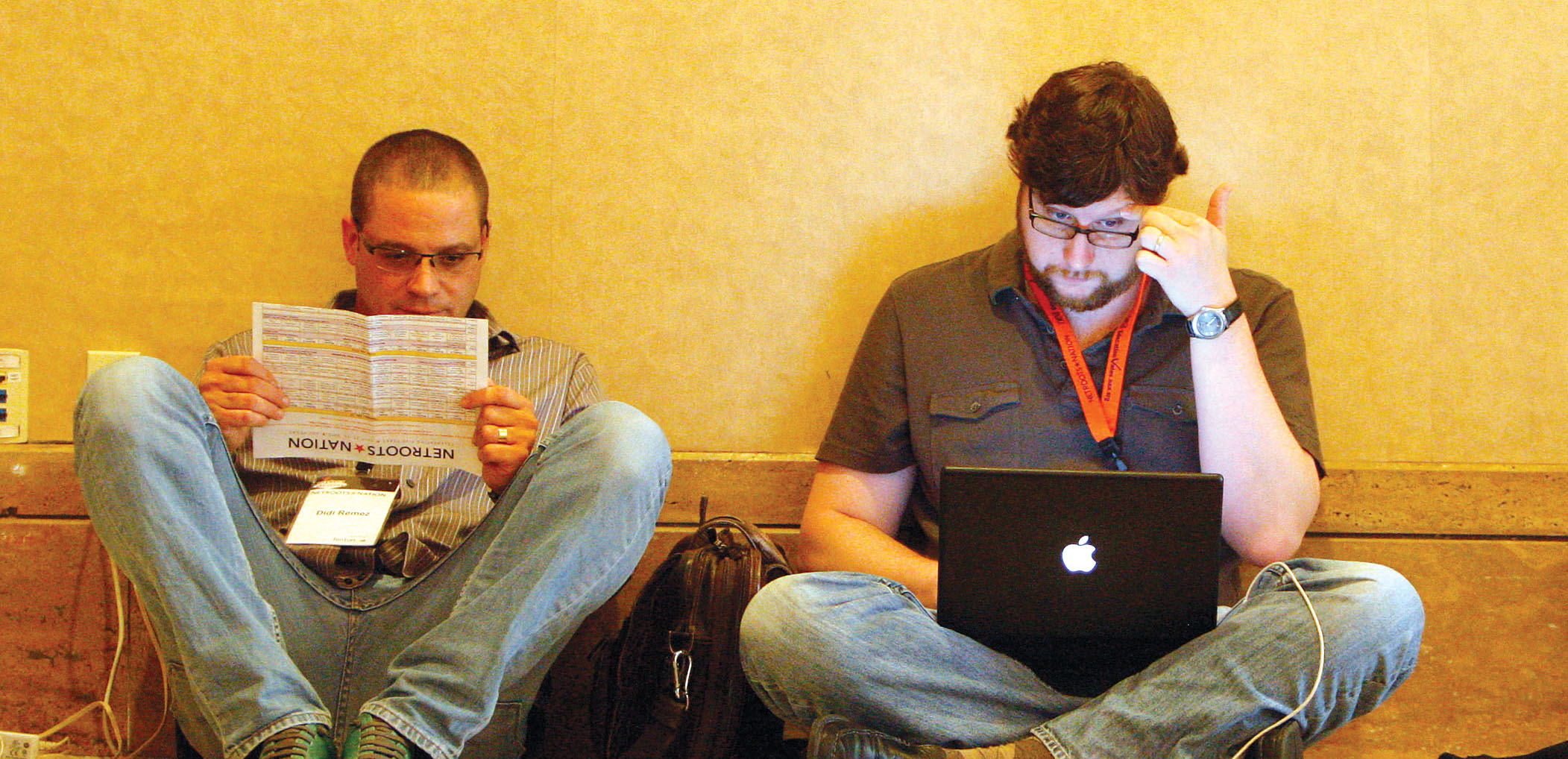It’s kind of disconcerting—or should be—to see Tony Snow, the president’s press secretary, sitting snuggly, legs crossed, hands daintily on his knees, next to one of the more prominent (and pugnacious) members of the Washington press corps, the preternaturally gray David Gregory (or “Stretch,” to the president). We’ve become so accustomed to seeing Snow looking down at Gregory from behind a lectern, that the two sitting side by side on a level stage, like the lion and the lamb, gives us the creeps.
But don’t worry. All is still right in Washington. These two have very good reason for lying down together. As the saying goes, the enemy of my enemy is my friend. In this case the enemy seems such a great overpowering threat, rocking their world so hard, that Stretch and Tony the Tiger have teamed up. The enemy, you ask? Why, bloggers, of course.
At an evening roundtable last week at the National Press Club (details of which Think Progress provides, via C-SPAN), the press secretary and the journalist discussed the impact the Internet has had on the coverage of Washington. Gregory took the first stab: “I think politics and political coverage has become so polarized in this country…because it’s the Internet and the blogs that have really used this White House’s press conferences to somehow support positions out in America, political views. And they will clip and digitize portions of these briefings to fit into their particular argument. I think people will try to divine motives of the questioners and certainly draw conclusions about the answers or non-answers based on their own political views.”
Snow then ripped off his own piece of meat. “I’m glad you raised the blog issue,” he said, then looked around at the other panelists, all print journalists, and inquired, “Do any of you guys look at blogs much?”
Well, it turns out Tony does, a bit. “You’ve got this democratic age of the media. I’ll occasionally punch it up,” he admits. “You’ve got this wonderful, imaginative, hateful stuff that comes flying out.”
“Hateful” was the operative word. Snow continued in this vein for a bit. But then Richard Wolffe, Newsweek’s White House correspondent, offered the coup de grace: “They want us to play a role that isn’t really our role. Our role is to ask questions and get information.… It’s not a chance for the opposition to take on the government and grill them to a point where they throw their hands up and surrender.… It’s not a political exercise, it’s a journalistic exercise. And I think often the blogs are looking for us to be political advocates more than journalistic ones.”
What binds the critique of Gregory and Snow, it seems, is an annoyance with the blogosphere’s insistence on seeing everything in political terms. Don’t they understand? We are objective. The White House tells us all it knows, in as clear and direct a way as it can. And the press corps—the people’s proxy—asks the questions it needs to get at that information.
They can’t be so naïve to believe this—to both imagine there is no spin or obfuscation, and that there is no political motivation beating in the hearts of reporters. The only other reason then for swatting away at what are actually—to be honest here—fairly powerless bloggers, is that they are genuinely scared. It’s not that blogs have brought a new politicization of the coverage. White House briefings, for example, have always been charged with politics. After all, it is the president’s version of events trying to beat out the others. What blogs bring is scrutiny. There is more of it. And this is what unites a David Gregory and a Tony Snow. They are being watched and picked apart by that many more millions of eyes. And this means journalists have to be more careful, choose their words more wisely, make their questions smarter and more aggressive. Press secretaries, for their part, have been forced to more quickly address criticism, answer questions more clearly than they have in the past, and be more accountable for flip-flops and lies.
Now, remind us again, what’s wrong with that?
TOP IMAGE: Bloggers in Las Vegas, July 24, 2010; Isaac Brekken/Tribune News Service via Getty Images




